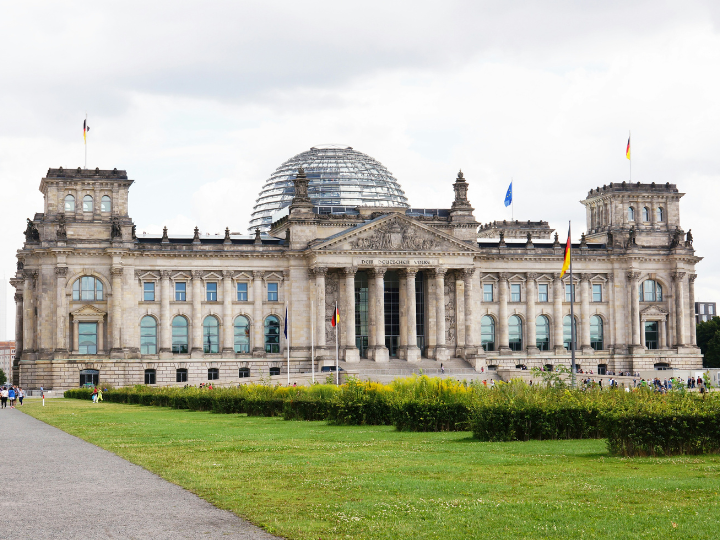by Alexandra Papaisidorou*
World War 2 has just ended, leaving tragedy in its wake. Germany is in ruins and people are searching in the darkness for traces of hope and survival for the future.
A married couple, Anne and Richard Rohlf, themselves victims of the war, look to the future with optimism and, together with the Braun brothers, establish through hard work and with vision the world’s first ever shaving machine company – BRAUN – in the poor, post-war city of Walldurn in Germany.
They give hundreds of families a new opportunity to stand on their two feet and dream of a future with optimism. They constantly help the weakest residents in the area, and make continuous humanitarian contributions, especially to the most vulnerable population groups – young children and the elderly. At the same time they support talented artists of the region, mostly through the ‘Richard & Anne Rohlf Foundation’.
They are enchanted by art, which clears away the dust and routine of daily life and helps people forget their problems and see their life more clearly, offering them beauty, calmness, happiness, peace, and optimism.
They are enthralled with the American Alexander Calder ( *1898 – +1976 ), “the precursor of kinetic art”, who was famous for his three-dimensional moving sculptures and painting; the Spaniard Antoni Tapies (*1923 – +2012 ), “the poet of matter”, who experimented with various materials, incorporating in his works “the waste of civilization” as he used to call it, string, rags, straw, dirt, papers; the Spaniard Joan Vila Casas ( *1920- +2007 ), an important representative of abstract art in the 1950s; the Hungarian Victor Vasarely ( *1906 – +1997 ) and his kinetic art as “a representation of motion and time on flat surfaces”; the German sculptor Victor Bonato ( *1934 ) with his pieces from steel and glass; the German sculptress Gertrude Reum ( *1926 – +2015 ) with her steel sculptures, etc.
Anne and Richard Rohlf are especially fond of naive art, specifically the unique and particular oil technique on the back of glass, which imbues a singular and enchanting quality on the pieces’ reflections.
They are taken by the great masters, representatives of the naive school of art, the Croatians Ivan Generalic (*1914 – +1992), Dragan Gazi (*1930 – +1983), Ivan Lackovic (*1932 – +2004), and others. Anne (*1922 – +2018) and Richard (*1920 – +1979) Rohlf’s love for Greece and Hydra never faded.
*Editor-at-large & PhD candidate of European & International Relations




 By: N. Peter Kramer
By: N. Peter Kramer

